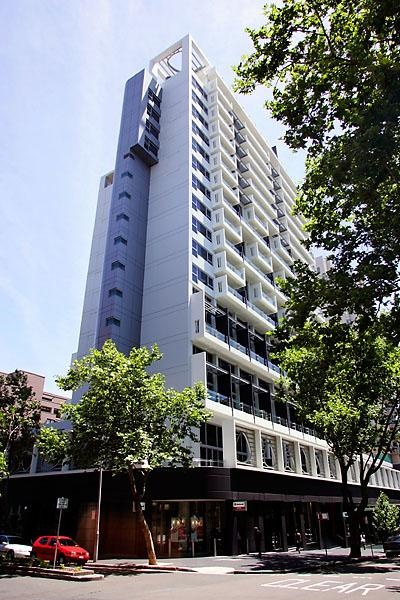How the 2017 Federal Budget will Impact Home Buyers and Investors
May 15, 2017 / Written by Thirst Creative
By Rich Harvey, CEO, propertybuyer.com.au
A range of fairly mild measures were announced in the 2017 Federal budget that will impact both home buyers and property investors (subject to the relevant legislation being enacted). While spending on infrastructure is always a welcome strategy, the budget does not go far enough to encourage small business, incentivise real economic growth and address housing affordability.
Here’s a quick snapshot and comments on the implications of the recent changes:
1. First home buyers will be able to use their superannuation as a low tax savings vehicle for a deposit on a home from 1 July. Individuals will be able to make extra voluntary super contributions of up to $15,000 a year beyond their employer’s Super Guarantee payments, up to a total of $30,000 (per person). These contributions will be taxed at 15% and can be withdrawn to go towards the deposit on a first home. Withdrawals of eligible voluntary contributions will be allowed from July 2018 onwards. This will replace the First Home Savers Account scheme, which was scrapped due to a lack of uptake. The scheme required potential first home buyers setup a special new account with a financial institution and keep their savings locked in the account for several years, whereas the new scheme will not have these requirements.
My view is that this will have minimal impact on the property market as it takes considerable time for first home buyers to save up enough for a home deposit. With low wages growth, saving $100k for a deposit is not going to happen overnight. It is good this incentive exists, but don’t expect massive uptake.

2. Downsizers and the over 65s will be able to contribute up to $300,000 to super from the sale of their principal home, if they’ve owned their home for at least 10 years. This will be treated as a non-concessional contribution outside their existing concessional and non-concessional contribution caps. The limit is per person, so a couples will be able to contribute $600,000 to take advantage of this measure for the same home. This measure applies even if they have reached the $1.6m cap in a private pension. Any amounts over $1.6m will be placed in an accumulation account where earnings are taxed at 15%.
Comment: The requirement for the home to be owned for at least 10 years and the proceeds being included in the means test for the age pension will make the scheme unattractive to many older people. A better policy would be to reduce stamp duty by 50% for those selling the old family home as this would free up more housing stock – the state governments would still get 50% of the stamp duty on transaction that would not otherwise happen!

3. Depreciation of Plant and Equipment. From 1 July 2017 depreciation deductions for residential plant and equipment assets (e.g. dishwashers and ceiling fans) will be limited to investors who incur the outlay – not subsequent owners. Also from that date, investors will be unable to deduct travel expenses related to inspecting, maintaining or collecting rent for a residential rental property. So those property trips to the Gold Coast to “check on your property” will no longer be tax deductible.
4. Social Housing Incentive. The capital gains tax discount will increase from 50% to 60% for investors who choose to invest in affordable housing. But to get the tax discount the investor must make hold the property as an affordable rental for minimum period of 10 years. The high capital gains discount is seen as a way of offsetting the lower yield the investor receives for investing in social housing.
5. Vacant Property Tax for Foreigners (the so called “ghost tax”). Foreign investors who acquire an interest in residential real estate from May 9 will face up to $5,000 for leaving their properties empty for more than six months a year. The biggest question in my mind is how are they going to monitor and enforce this tax? Will there be an army of ATO door knockers going around the apartment blocks at night to see if anyone is home?
6. Foreign and temporary tax residents will be denied any access to capital gains tax exemptions from 9 May, although anyone who bought properties prior to this date with such exemptions will have them grandfathered until 30 June 2019. The CGT withholding tax rate for foreign tax residents is also being lifted from 10 per cent to 12.5 per cent and the CGT withholding threshold for foreign tax residents is being dropped from $2 million to $750,000. This means that any time a property worth $750,000 or more is sold, the seller will need to provide a certificate noting they are a resident, or they will face some of their profits being withheld. This may reduce foreign demand for property.
7. Property developers will be prohibited from selling more than 50% of new developments to foreigners (where a development has at least 50 units). This is a reversion back to the original policy. However, this may actually result reducing property supply as some developers will no longer find it viable to just sell 50% to the local market. One of the reasons that apartment supply has lifted dramatically in some pockets of Sydney and Melbourne is the ability of developers to sell the majority to overseas buyers.

Successive Governments will keep fiddling with the rules regarding property investment and home buying. The trick with any budget is to work out how to keep the economy moving forward without have to ramp up spending and taxing us too severely and without crimping the entire property market (which has been a huge engine of growth).
It pays to get sound financial advice and have a clear entry and exit strategy BEFORE jumping into the property market. If you would like assistance navigating your way through the property options talk to one our friendly and professional buyers’ agents.













































.svg)
.svg)
.svg)



